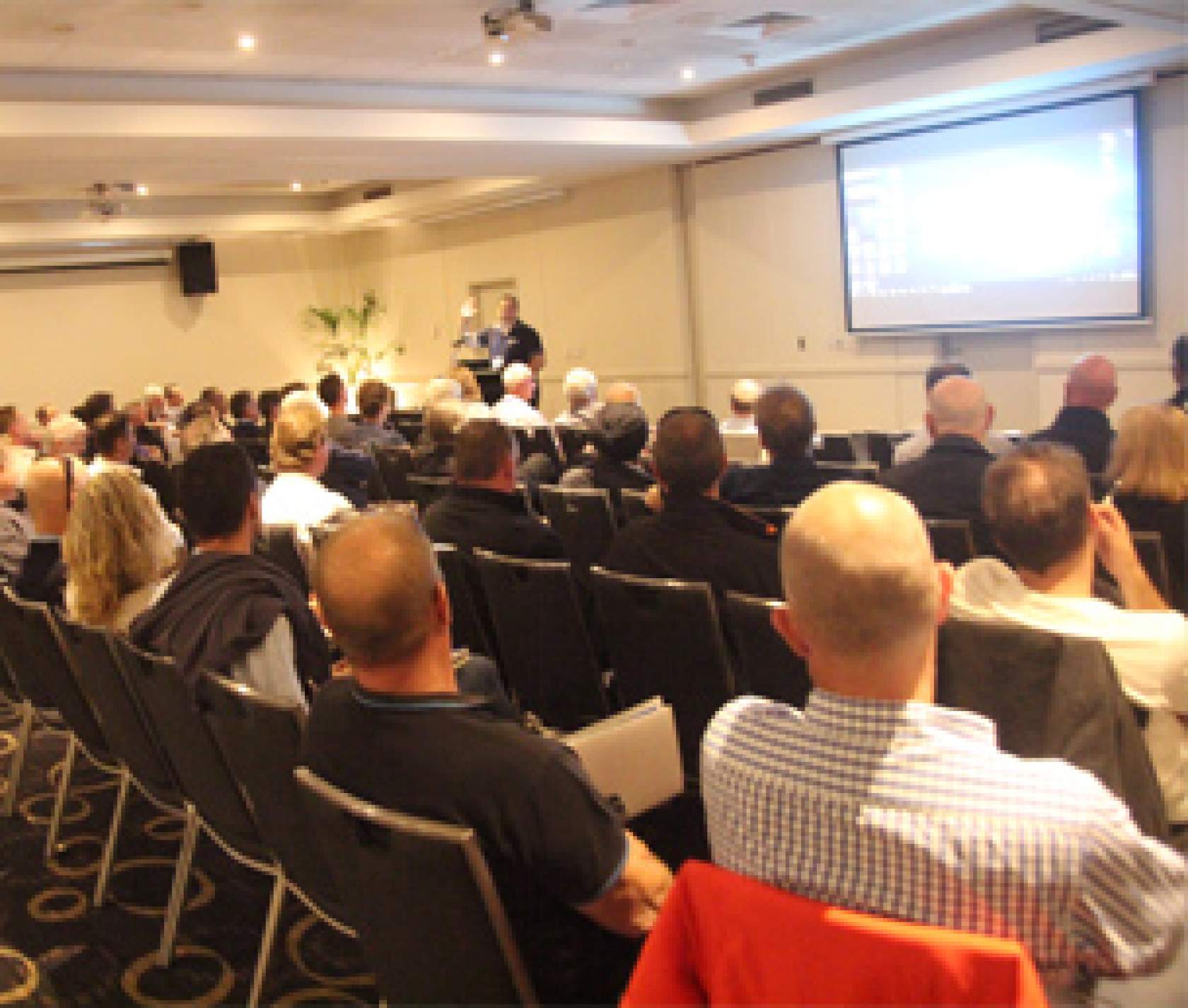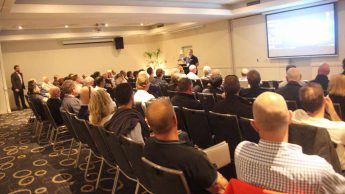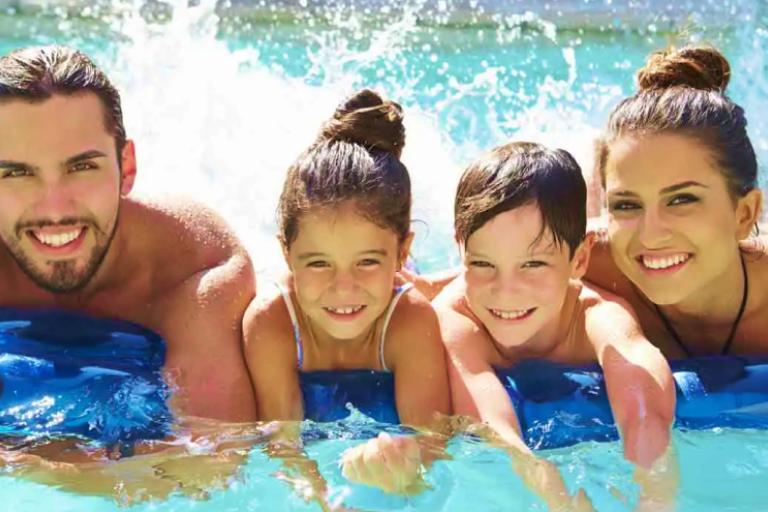Largest ever gathering of pool certifiers meets to discuss concerns


Approximately 100 people including 85 accredited NSW pool certifiers gathered at Rydges Parramatta on May 24 to discuss issues of concern and establish a framework for more formal networking.
The event was organised by SPASA NSW & ACT to provide an opportunity for certifiers to discuss the NSW barrier inspection and certification regime.The formal part of the evening lasted for three hours and was followed by informal networking over drinks.
One focus of the evening was a discussion of a recent survey commissioned by SPASA and sent to all certifiers in NSW, with 123 responding with answers.
While the swimming pool register has been operating since 2013, it was only on April 29, 2016 – after two stalled attempts – that pool certificates became mandatory at the sale or lease of a residential property (of two or less dwellings) that included a swimming pool.
Anticipating a logjam, the NSW government changed the legislation at the last minute to provide an extra option for vendors – they could attach a certificate of non-compliance to the contract if the pool does not comply, and the purchaser will have 90 days to rectify the issue.
Through the Building Professionals Board (BPB), they also lowered the cost of completing the E1 Certifiers course to $750, half the original cost, to encourage more certifiers to join the ranks.
Survey and discussion
The presentation of the preliminary survey results precipitated much discussion about the procedures of carrying on their work, costs involved, and the relationship between the courses and the bodies of the Office of Local Government (OLG) and the BPB, amongst other things.
Of the survey respondents, 45 per cent had qualified through the E1 certifiers courses. There are three organisations running the E1 courses: Traxion Training, Assent TECs, and CPD Training. Spiros Dassakis, who hosted the evening, said that he understands there is considerable variance in the courses run by the three operators, and wants the course to gain national recognition through the Australian Skills Quality Authority (ASQA). Survey results showed the certifiers agreed, with 81 per cent wanting the courses nationally recognised.
Much discussion took place over this question on the floor, with one speaker believing it wasn’t necessary, while another speaker who was supportive of the idea pointed out that the Queensland courses are already recognised under ASQA.
The issue of certifiers coming down from Queensland to certify pools in New South Wales also generated much discussion, and it is worth noting that more than a third of survey respondents have E1 qualifications through mutual recognition. One speaker from the floor asked how these people could understand the New South Wales legislation, given that Queensland operates under Australian Standard AS1926.1-2007 whereas NSW has adopted Australian Standard 1926.1-2012.
A speaker from the floor said she understood all but two of those people from Queensland have undertaken E1 training in NSW, even though it is not required, to ensure they understand the NSW legislation.
The survey results showed 95 per cent believe E1 training should be carried out by anyone certifying pools including those with mutual recognition credentials and also council officers. A total of 65 per cent said the E1 course provided them with the knowledge they needed.
Other popular items for discussion from the survey included the need for the establishment of a NSW Pool Safety Council (85 per cent in favour); the release of the Lambert Report to the industry (95 per cent) and the suggestion that not enough has been done to educate purchasers about the certification regime (72 per cent).
Communication
One of the big topics of discussion was the level of communication with the OLG and the BPB. The survey showed that 63 per cent did not believe there is sufficient guidance provided by the OLG and the BPB to assist pool certifiers.
Furthermore, 51 per cent were unsatisfied with the quality and level of communication from the OLG and the BPB. Worryingly, a total of 66 per cent said they had received different interpretations of Standards, Regulations and the Act when speaking with those bodies.
When asked how long they had to wait for a response when raising questions with the OLG and the BPB, only 31 per cent received a response within three days while 21 per cent never received a response at all.
A speaker from the floor qualified the results by saying lumping the two bodies together is misleading: he had reason to contact both organisations many times, and while the BPB often didn’t call him back, the OLG always returned calls punctually.
Dassakis said the most noticeable thing about the gathering was that the big turnout and enthusiastic engagement throughout the three hour meeting showed certifiers clearly have a desire to learn and be supported.
“There is no ongoing support for these people once they’ve passed their course,” he said. “They are looking for answers but not getting them; and SPASA is happy to assist them find the answers.”
He said the meeting was an investment by SPASA but it is important to the industry to ensure the inspectors not only have a voice, but that someone is listening to their concerns and attempting to provide practical and referenceable assistance.
“The ability for them to network with their peers is very valuable,” he said.
“It was extraordinarily pleasing to see this new sector exchanging phone numbers and creating a network of like-minded individuals. This is SPASA’s role to provide such opportunities and we look forward to representing them into the future.”
The Minister for Local Government Paul Toole was sent a copy of the survey results, as were other stakeholders and interested persons.
A spokesperson said the Minister welcomes feedback from swimming pool industry stakeholders and he is considering the report.
Residential property sales
Meanwhile, Tim McKibbin, CEO of the Real Estate Institute of NSW says that the option to attach a certificate of non-compliance seemed to have worked, as he has received no negative feedback from property managers about issues with sales and auctions since the launch date.
“I have to say, surprisingly I haven’t had any negative feedback at this stage. I’ve been on the road delivering seminars on the topic and I think residential property managers have been very pro-active and heeded the warnings,” he says.
“We knew it would be happening on the 29th of April; we just didn’t know which year!
“I think the ability in the sales environment being able to get a certificate of non-compliance has alleviated many of the problems and I understand they’re reasonably easy to get a hold of. Alarmingly though, I understand up to 95 per cent of inspections failed and the remedial activity varies from only a few hours to up to possibly 18 months.”
Certificate requirements
From 29 April 2016, properties sold with a pool in NSW must have either:
- A certificate of compliance;or
- A relevant occupation certificate and a certificate of registration; or
- A certificate of non-compliance.
When you buy a property with a non-compliant pool, you will have 90 days from settlement to fix any areas of non-compliance.
From 29 April 2016, properties leased with a pool must have either:
- A certificate of compliance; or
- A relevant occupation certificate and a certificate of registration.
The pool and spa industry and the real estate industry are eagerly awaiting the results of the coming weekend auctions to monitor any effect of the commencement of the regime.
More information is available at the Office of Local Government and from SPASA NSW & ACT.




